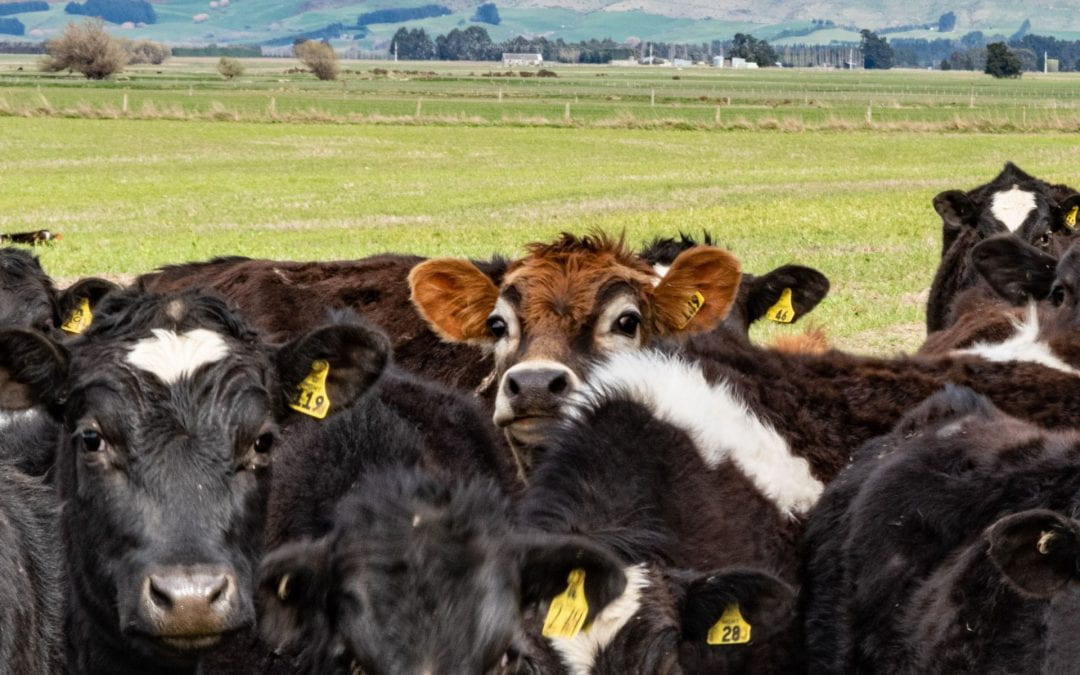Photo by Gulfside Mike on Unsplash
One of the biggest challenges facing Aotearoa New Zealand’s environmental response are its farms. Addressing agriculture is central to reducing New Zealand’s unique emissions profile and combatting the impacts of climate change. New Zealand ranks above average for rates of emissions per capita – but unlike other developed countries nearly half of its emissions come from agriculture rather than energy and fossil fuels. Of New Zealand’s agricultural emissions, 78% come from livestock and 21% from soils (fertiliser applications etc.). To further complicate matters, New Zealand has been recognised as using some of the most carbon efficient agricultural practices in the world.
What does this mean for New Zealand’s environmental response? Especially when looking beyond emissions and considering the place of farms in New Zealand’s communities, economies, and ecosystem. The Big Q is reaching out to researchers across the University of Auckland to find out how they’re looking at the environmental challenges presented by agriculture and what those mean for New Zealand’s environmental decisions. First in the series, Dr Emma Sharp (School of Environment) draws on her work in food economies to outline the limitations of techno-scientific solutions to production, and the issue of consumption.
By Dr Emma Sharp
Techno-scientific solutions have been thrown at the problem of farm-based greenhouse gas emissions. It’s an economy in and of itself.
Cultured meat production is just one such disruptor. The global market for cultured meat is growing rapidly in the face of climate change urgency, and animal ethics concerns, and we have seen global investment in this area tripling between 2020 and 2021. With the United Nations forecasting that the global population will increase to approximately 8.5 billion by 2030, current estimates predict that global meat consumption will have increased 14% by that point, in comparison with the averaged baseline amount from 2018 to 2020.
The emergence of cultured meat is thus viewed by its advocates as a solution to ensure global food security with less adverse impacts than the current meat production system. However, the process of creating cultured meat is not without controversy. Critics have questioned the environmental impacts of lab by-products, as well as the health effects of maintaining what has become an over-consumption of meat in many populations, effects on global food equity, and the socio-economic effects on rural livelihoods of this emerging economy. Aside from these market aspects, there is a more philosophical question about the impacts to people’s relationship to the environment in the production of ‘food-without-place’. Aotearoa’s food production is built on provenance, whilst laboratories worldwide are reasonably uniform, by design.
Rather than just approaching the problem of production – either by ‘tinkering round the edges’ of current food production in Aotearoa New Zealand, or by making wholesale changes to production methods – we should also address our unsustainable consumption patterns. We need to radically reduce the volume of ruminant animal meat and dairy that we consume. There is huge energy inefficiency in generating the vast volumes of animal feed required to sustain the animals we domesticate for food. We need to effectively account for the environmental costs of our activities that have been externalised for far too long.
All up, our current global consumption and economic models are wasteful, driving unnecessary food production and environmental degradation. In this vein we need to be cautious about proposed buzzwords such as ‘circular economy’, and really consider how circular these economies are. There is a risk in the circular economy of food, which promotes the practice of profiting from the capital of waste and in turn incentivises overproduction and oversupply. This practice puts excessive pressure on our environment, which is already buckling under the strain of our current rates of extraction.
The reality is that we already produce more protein than we need per capita. From this standpoint, New Zealand is behind others, still creating a demand for meat, whereas elsewhere (e.g. Haarlem, NL), there is a ban of public advertising for it. So long as New Zealand fails to address consumption as well as production, we are robbing future generations of a functioning environment for the sake of economic priorities, a lack of imagination, and a reluctance to change.
Dr Emma Sharp is a senior lecturer in the School of Environment, at the University of Auckland.
The Big Q is working with Ngā Ara Whetū to bring you research and news on climate, biodiversity, and society from an Aotearoa, New Zealand perspective.
Disclaimer: The ideas expressed in this article reflect the author’s views and not necessarily the views of The Big Q.
You might also like:
What should New Zealand do to commit fully to tackling climate change?
COP27: Why can rich countries no longer ignore calls to pay the developing world for climate havoc?

